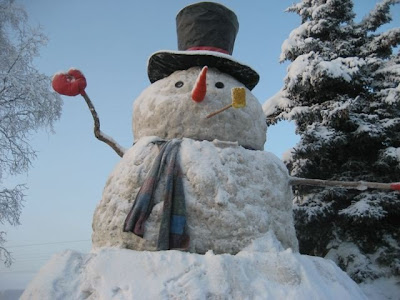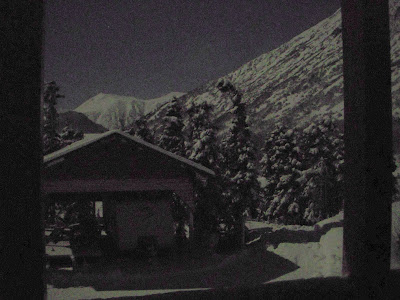(I apologize for the week-long lack of posting here. This is by way of explanation. Sometimes when I am profoundly affected by events, my muse turns to doggerel to cope.)
of death, and loss, and healing….
Death has been too much with us these days. It haunts my small town, its appetite more than we can bear.
Forty-three years ago, I had a conversation with a friend about death. I don’t recall the impetus for the conversation now, only that we spoke of various means of dying. We talked of which were awful, which were truly awful, which we abhorred and feared most of all, and which we preferred, given that there was no alternative.
The latter mostly involved a lack of both pain and awareness—in our sleep after a long and adventurous life being the number-one rated. In a letter written shortly afterwards to a friend, I quoted myself, “I'm not afraid of death at all. I just want to get all these words out of me, and then I'll be ready."
My friend saved that letter, along with many, many more, then returned them to me after more than thirty years. I saved them, hidden from sight, and then two years ago finally read them. Idiot, I laughed to myself when I first read that letter and computed my age then as newly twenty-four. In five short years, since leaving my parents’ home, I felt I had managed to make a mess of everything. Instead of spreading my wings and soaring, my flight of freedom into the adult world involved much more flapping than soaring, and a vast number of crash landings.
I went easy on myself after reading those long ago words, because I vividly recalled my various failures and the sadness they caused me. Perhaps it is fortuitous that we are not always and immediately granted our hopes and wishes, because I quit writing shortly after that conversation, and I certainly wasn’t ready to leave this earth. Except for a couple brief forays into the world of words, I abstained from writing until after I read those old letters.
I still think I was an idiot for what I said at that age, but now I can see a truth in part of it, so I have—as I said earlier—been easy on myself. Am I afraid of death? You darn betcha! Am I ready? Not one bit! I am crammed full of words that need release. I will, as Dylan Thomas wrote, “…not go gentle into that good night (but will) rage, rage against the dying of the light.”
Those of us who attempt and presume to be writers deal with sorrowful matters differently than those who are not. We are blessed with the gift of reaching within ourselves to pull out the grief and hurt, and to capture it on paper. It is a method of cleansing our souls, of cutting things down to a size we can deal with, thereby gaining power over those things that cause us hurt. In the simple act of putting pen to paper, or fingers to keyboard, we begin to make sense of what haunts us, or to realize there is no sense to be made of it. And that begins the healing.
Recent events in my small community have stunned me into silence for the past week. Last night, while still awash in grief, I put pen to paper. I apologize in advance if some would deem the following inappropriate. Such is not my intent; it is my way of coping.
Infinity
When Death first came to claim its due,
it took the one who’d spurned its grasp,
had cheated Death time and again
until Death said, “Your time has passed.”
We paused in sorrow on the news,
shared our tales, whispered, “Godspeed,”
hoped that Death would shun us now,
sated and content to leave.
Unbeknownst it lingered still,
with icy finger touched one’s heart,
felled a man yet in his prime,
gathered him in cold dispart.
Despondent widow summoned Death
offered out her hand to it,
looked beyond the dread divide,
and crossed the cold, dark river Styx.
“No,” we cried. “That cannot be,
you’ve taken more than we can bear.
Leave us now to mourn and grieve,
and ponder yet why Death’s unfair.
But Death was greedy and not sated,
at bottom of a staircase waited
for the one whose chance misstep
tumbled him to Death’s cold grip.
Now we lament in disbelief,
searching for the sense in it,
asking what awaits for us,
and knowing Death is infinite.
Dec. 6, 2008
 Don't miss the thick, black horizontal line on the left that indicates this temperature is below zero...
Don't miss the thick, black horizontal line on the left that indicates this temperature is below zero...










 The window's adorned in pine cones and bright red,
The window's adorned in pine cones and bright red,




 Mooseletoe...
Mooseletoe...





 There's something a bit unsettling about this picture. A driver rounds a sharp curve on a wet, icy highway and sees these birds of prey lurking above. They are not only hunting birds-- they also eat carrion...
There's something a bit unsettling about this picture. A driver rounds a sharp curve on a wet, icy highway and sees these birds of prey lurking above. They are not only hunting birds-- they also eat carrion... Yes, that's a snow bank. Yes, he's wearing a tee shirt. See the bare arms?
Yes, that's a snow bank. Yes, he's wearing a tee shirt. See the bare arms? No hat, no long sleeves, no gloves. Jeans, tee shirt, sneakers. Temperature? Around 25.
No hat, no long sleeves, no gloves. Jeans, tee shirt, sneakers. Temperature? Around 25.
 and for all the in between years:
and for all the in between years: 




 Can you tell me what it is?
Can you tell me what it is?  but that was long enough to plow all the way out to the highway--more than 500 feet. As far as you can see white winding through the trees is driveway.
but that was long enough to plow all the way out to the highway--more than 500 feet. As far as you can see white winding through the trees is driveway.





 Once in a while, we actually cook here at Gullible's, as evidenced by this Chicken Tortilla Soup, served in this lovely scalloped bowl. Simply boil whatever's left from the Costco rotisserie chicken carcass, add onions, a can of corn kernels, a can of black beans, a can of diced tomatoes, salt, cumin, coriander, garlic and dried cilantro. Serve with Nacho Doritos topped with shredded cheese. Bowl from Wal-Mart's collection of fine dining culinary ware. Sorry, no brand on bowl.
Once in a while, we actually cook here at Gullible's, as evidenced by this Chicken Tortilla Soup, served in this lovely scalloped bowl. Simply boil whatever's left from the Costco rotisserie chicken carcass, add onions, a can of corn kernels, a can of black beans, a can of diced tomatoes, salt, cumin, coriander, garlic and dried cilantro. Serve with Nacho Doritos topped with shredded cheese. Bowl from Wal-Mart's collection of fine dining culinary ware. Sorry, no brand on bowl. Seating is available in the living room in front of the TV, at the kitchen counter, or upstairs in the loft in front of the computer. Wherever you choose, as long as you share with Pablo. He'll eat everything but pickles and olives. He'll even eat green peppers and marshmallows and meringue, except those things aren't served at Gullible's Bistro. He especially loves winter squash. Ever seen a parrot with an orange beard?
Seating is available in the living room in front of the TV, at the kitchen counter, or upstairs in the loft in front of the computer. Wherever you choose, as long as you share with Pablo. He'll eat everything but pickles and olives. He'll even eat green peppers and marshmallows and meringue, except those things aren't served at Gullible's Bistro. He especially loves winter squash. Ever seen a parrot with an orange beard?




 Just in case you haven't figured out why I'm baring my messy loft and my soul, well, the muse has been missing for a few days. I'm trying to entice her to return. We have an assignment for the on-line Mystery Class. This is the big one--we have to solve the mystery, figure out the plan,climax, and ending. I'm at a loss without her.
Just in case you haven't figured out why I'm baring my messy loft and my soul, well, the muse has been missing for a few days. I'm trying to entice her to return. We have an assignment for the on-line Mystery Class. This is the big one--we have to solve the mystery, figure out the plan,climax, and ending. I'm at a loss without her.